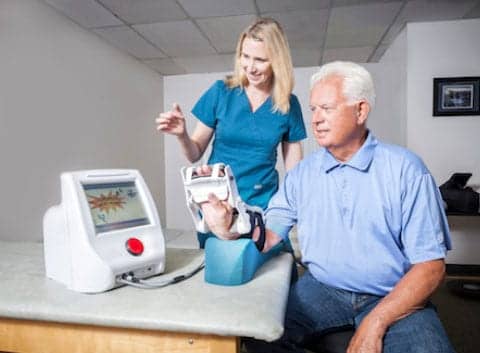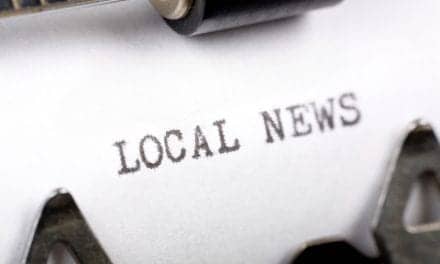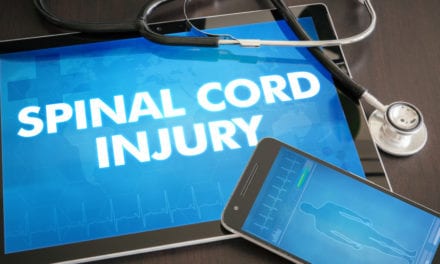Motus Nova is expanding its list of partner hospitals and clinics using its FDA-approved robotic stroke therapy system. It also plans to introduce its system to the consumer market for home use in Q3 2019.
Twenty-five hospitals in the Atlanta area within Emory Healthcare, the Grady Health System, and the Wellstar Health System are now using the Motus Nova rehabilitation therapy system, which is designed to use Artificial Intelligence (AI) to accelerate recovery from neurological injuries such as strokes.
The system features a Hand Mentor and Foot Mentor, which are sleeve-like robots that fit over a stroke survivor’s impaired hand or foot. Equipped with an active-assist air muscle and a suite of sensors and accelerometers, they provide clinically appropriate assistance and resistance while individual’s perform the needed therapeutic exercises.
A touchscreen console provides goal-directed biofeedback through interactive games—which Motus Nova calls “theratainment”—that make the tedious process of neuro rehab engaging and fun.
“It’s a system that has proven to be a valuable partner to stroke therapy professionals, where it complements skilled clinical care by augmenting the repetitive rehabilitation requirements of stroke recovery and freeing the clinician to do more nuanced care and assessment,” says Nick Housley, director of clinical research for Atlanta-based Motus Nova, in a media release.
“And while we continue to fill orders for the system to support therapy in the clinic and hospital, we also are looking to use our system to fill the gap patients often experience in receiving the needed therapy once they go home.”
Clinical studies show that neuroplasticity begins after approximately many 10’s to 100’s of hours of active guided rehab. The healing process can take months or years, and sometimes the individuals might never fully recover. Yet the typical regimen for stroke survivors is only two to three hours of outpatient therapy per week for a period of three to four months.
“These constraints were instituted by the Centers for Medicare & Medicaid Services (CMS) in determining Medicare reimbursement without a full understanding of the appropriate dosing required for stroke recovery, and many private insurers have adopted the policy, as well,” states David Wu, Motus Nova’s CEO.
Motus Nova plans to offer a more practical model, the release continues.
“By making the system available for home use at a reasonable weekly rate as long as the patient needs it, the individual can perform therapy anytime,” Wu adds. “A higher dosage of therapy can be achieved without the inconvenience of scheduling appointments with therapists or traveling to and from a clinic, and without the high cost of going to an outpatient center every time the individual wants to do therapy.”
While the system gathers data about individual performance, AI tailors the regimen to maximize user gains, discover new approaches, minimize side effects and help the stroke survivor realize his or her full potential more quickly.
“By optimizing factors such as frequency, intensity, difficulty, encouragement, and motivation, the AI system builds a personalized medicine plan uniquely tailored to each individual user of the system,” Housley comments.
“Our system is durable, too, proven in clinical trials to deliver an engaging physical therapy experience over thousands of repetitions. We look forward to making it available on a much wider scale in the coming months.”
[Source(s): Motus Nova, PR Newswire]





